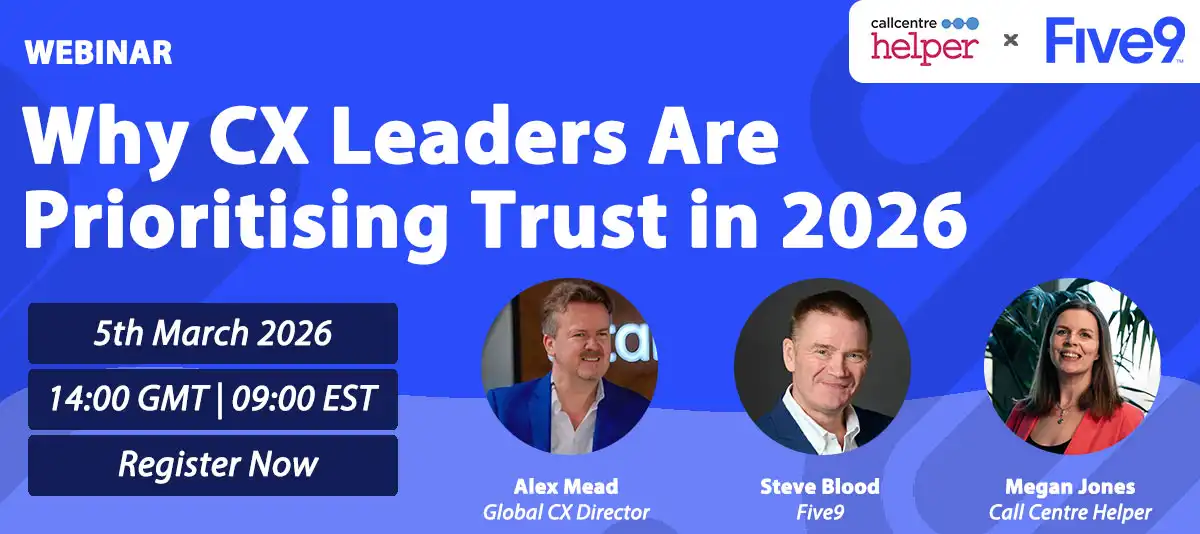In this instalment of Call Centre Helper’s “What I’ve Learned” series, Chris Merricks outlines the valuable lessons he’s learnt during his career working both client and vendor side in call centres.
I read Robert Sykes’ great article kicking off the “What I’ve Learned” series and it made me think about my own journey and what I’ve learnt along the way.
Firstly, a quick background. I started working in contact centres in the late 90s and then moved to the other side of the fence, working for Oracle where I still visited call centres but saw them from a different perspective.
I now have my own CX Consultancy company where I’m able to put into practice all that I’ve learnt over the years, particularly how to support your team and help individuals to reach their full potential.
It’s about personalities, motivation and the employee experience (on and off the screen), not purely the maths.
Lesson 1 – Not Everyone Is Motivated by Statistics

Statistics are important, but not everyone is motivated by them. Some people are “Keiths”.
They are happy to come in, do their work, and go home. Never faster, rarely slower, but also not interested in improving.
You need to be able to judge whether this contact centre “lifer” is worth keeping or not. As we know, some part of running a contact centre is pure maths.
At worst, it’s akin to a production line. But Keith can play an important role and is often the best person to sit with team members because of his lengthy tenure and encyclopaedic knowledge of the processes.
Lesson 2 – It’s About the Right Mix of Personalities
Whilst Myers Briggs personality tests will teach you a lot, it’s important to get the right balance of people. Belbin’s team roles is another, but you need to consider if you have an army of robots, or a room of personalities. The reality is you need a mix.
Too many robots, and there’s no atmosphere, and empathy with customers can be lacking. Too many personalities, and it’s a loud noise, long call lengths and little work done (in my experience).
So it’s important not to have “bums on seats.” Recruiting the wrong people is worse than not recruiting at all. If you employ the wrong people valuable time will be spent dealing with customer complaints, HR issues, performance problems and even the police.
You’ll then waste further time ‘letting them go’ and then starting again, and we haven’t even talked about the cost to the business yet.
So my advice is to recruit for aptitude and attitude; you can rarely teach this.
Lesson 3 – Beware of the Stats Cheats
If someone’s performance is too good to be true, it probably is. I’ve seen all the tricks.
From pressing to make an outbound call, only for it to time out 45 seconds later, giving them some additional wrap time without it being counted as wrap time, to those making themselves unavailable briefly so they can join the back of the “longest agent available” queue, thus not getting the next call.
If you let these ploys go unchallenged, they become rife throughout the contact centre.
Know what to look for, perform regular checks, and pull people up when they try these tactics. They’re not being a team player, and you don’t need that.
To find out what contact centre employees do to avoid taking calls, and advice for how to catch them out, read our article: 7 Tricks That Call Centre Employees Play
Lesson 4 – Understand Your Team’s Pain Points
Don’t just listen to call recordings, sit with your agents, watch them use the system, and “follow the ticket” to see a query go from beginning to end.
You will be amazed at what nonsense they have to put up with through poorly designed systems, difficult colleagues, and broken processes.
Most of the time they’ll just find a way to deal with it and you don’t get to hear about the problem. Use the five whys, but ultimately be prepared to hear “it’s always been like that.”
If you understand exactly what their difficulties are, you can effect simple changes that will have a massive impact.
Lesson 5 – Multi-Skill and Empower
It’s no coincidence that those who adopt a multi-skilled and empowered team set-up, frequently top the UK Customer Satisfaction Index.
Think about the agent’s salary, the team leader’s and your own. When a question comes to you about an issue that is going to cost £5 to resolve, think about how much employee time (and your own) has been spent understanding the issue and escalating it?
Probably more than £5. You need to understand how many of those issues you’re getting and then find a way to prevent them in the future.
In other words, don’t find a solution, fix the problem. It’s far better to work out why it’s happening, and what you can do to prevent it, than stick a plaster over it.
Establishing levels of empowerment works wonders in a contact centre. You don’t need to control everything, so think about what an agent and the team leader can write off individually without authorization and what really must come to you.
Don’t be afraid to push back if it isn’t your fault or responsibility, though. When I managed a travel company’s UK contact centre team we halved our write-offs simply by pushing the customers back to the airlines who hadn’t done what they should have done for the customer.
Personally, I take greater care to resolve the issue of a calm complainer than someone who’s “lost it” on the phone. Nothing gives you the right to speak to my team badly.
If you can, work out what areas can be multi-skilled, create a training roadmap, and start with those who know most of those skills already.
This provides the agent with a greater degree of enablement, variety and autonomy, but also a much better service for the customer a much better service.
One call and done is far better than “I’ll just put you through to the XYX team.”
To discover how call centre advisors can take control of customer contacts, read our article: Training Your Team to Take Ownership
Lesson 6 – It’s About Working as a Team
No one is above taking a call or responding to an email during a crisis. If a team leader, trainer or quality assurance person thinks they don’t have to take calls when an ash cloud or tsunami is driving call volumes up massively, think again.
When it hits the fan, people remember who stepped up and mucked in. If you have people who can’t help with answering questions, get them to walk around with a piece of paper to see who wants tea, coffee or water.
Keep a list of what people have and how they like their drink. Next time, it’s “tea, coffee, water?” along the top of the paper, and a list of names down the side.
The list can simply be ticked and the “how they like it” is in the kitchen for them to refer to. Make sure people take their legal and scheduled breaks. Believe it or not, some people will need to be encouraged to take a break. Don’t let them burn out.
Whether it’s in a crisis or just business as usual, always appreciate your team. Recognition, compassion and an empathetic approach go a long way. Sometimes, a pizza delivery is all that’s needed.

I always say that “the world needs bin collectors”. So whether someone is working in a call centre, cleaning streets, or running their own business, no one is more important than anyone else based on their job.
So make sure you’re looking after the employees, and they will do a much better job of increasing productivity than any amount of coaching can do.
Written by: Chris Merricks, Managing Director at CX-Consultants
Read more articles in our “What I’ve Learned” series by following the links below:
- What I’ve Learned From Running a Contact Centre – Everyone in Your Team Is an Individual
- What I’ve Learned From Running a Contact Centre – Think of an Agent as a Teacher
- What I’ve Learned From Running a Contact Centre – Know Your Stats
Author: Guest Author
Reviewed by: Robyn Coppell
Published On: 13th Jul 2022 - Last modified: 7th Jan 2026
Read more about - Call Centre Management, Advice, Management Strategies, Metrics

















